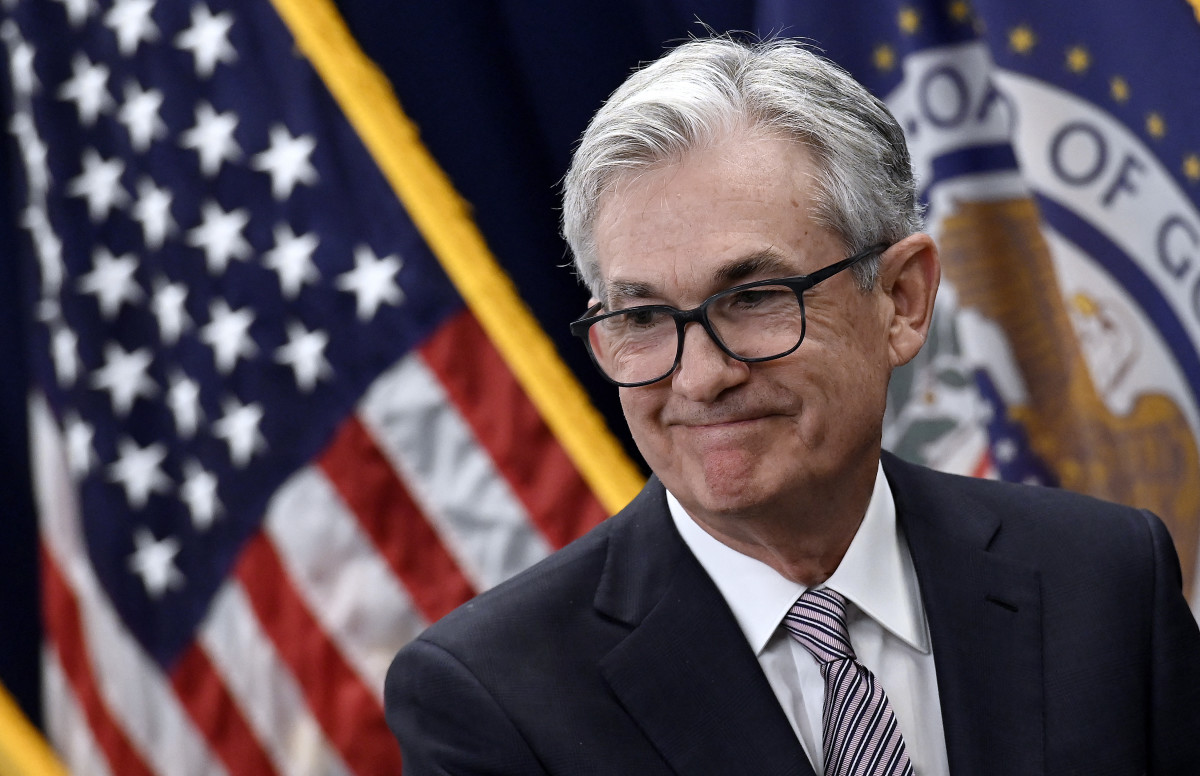
Federal Reserve chairman Jerome Powell conceded in congressional testimony this past week what many Americans know.
The economy is OK, but it's tired. Jobs are a touch less plentiful, and inflation is, at best, an annoyance and, at worst, a huge headache.
And then there's the stock market. Its big rally since October has been so fast and powerful that investors, money managers, and even just plain folks think it's a bit much. And maybe a nap would be nice.
Related: Delta CEO sounds alarm about a growing problem
Or maybe the market environment is shifting into a market of stocks, as the Street Pro columnist Doug Kass said last week.
The week ahead has some potential to make a nap happen for markets, as earnings season jumps into a higher gear, plus a slew of economic reports come out.
What Thursday's slump showed
After the S&P, Nasdaq, and Nasdaq-100 indexes hit record levels and looked seriously overbought, Thursday produced a surprising tech-stock stumble.
Tesla's (TSLA) 8.4% decline set off the stumble, its biggest one-day drop since January, on a report it may delay its Aug. 8 robotaxi unveiling.
That caused rallies in the S&P 500, Nasdaq, and Nasdaq-100 indexes to stall after each had risen on 10 of the 11 prior days.
On Friday, the Dow industrials closed at 40,000.90, up 247 points and their second close above 40,000 ever.
At 1:49 p.m., however, came this: The Dow hit a record intraday high of 40,257.24, up 503 points.
At that moment, many investors—or their computers—said, "Sell. It's time to relax."

The average duly fell 257 points into the close.
The volatility of Thursday and Friday raises two questions:
- Is a big market correction about to hit?
- Is the stock market's strength about to rotate away from Big Tech?
What a correction might mean
The popular definition of a correction is a decline of 10% or more from a recent high. A bear market is a big correction.
The last big correction came from the market top in November 2021 to the bottom in October 2022. The S&P 500's decline was 24% — an actual bear market.
There are some similarities between 2021-2022 and now. In late fall 2021, many stocks became overbought as meme-stock fever and speculation in cryptocurrencies were rampant.
The Fed triggered the correction because it had declared war on inflation and would raise its key rate 11 times between early 2022 and July 2023.
Overbuying this spring, especially since May, has been a feature of the current state of stocks.
But it's primarily big stocks that are soaring. Using data from Yardeni Research, you can see the overbuying in how the forward price-earnings ratios of the largest stocks compare with smaller stocks.
As of Friday, the forward price/earnings ratio of the largest stocks (the Magnificent 7 plus Netflix (NFLX) ) was 31.5.
The P/E ratios for other groups of stocks were:
- S&P 500 overall: 21.4.
- S&P Midcap 400: 15.5.
- S&P Smallcap 600: 14.6.
In other words, many investors didn't care what price they had to pay to buy Nvidia (NVDA) , Microsoft (MSFT) , Apple (AAPL) , or Super Micro Computer (SMCI) . The trigger for a pullback this time will probably be more evidence of economic softness.
But a correction would be short-lived because the Fed won't want severe damage.
Besides, a S&P 500 decline from 5,600 now to 5,000 would still leave the index with 5% gain on the year.
The decline from the S&P's peak in 2007 to its bottom in March 2009 was 56%, and it took years to recover.
More Economic Analysis:
- June jobs report bolsters bets on an autumn Fed interest rate cut
- Biden debate flop boosts Trump, but economy may be tougher opponent
- Doug Kass: Welcome to the New Stock Pickers' Market of 2024-2025
What would a market broadening mean?
One could see the possibilities on Thursday when the top four Dow stocks were Home Depot (HD) , McDonald's (MCD) , 3M (MMM) , and Dow (DOW) .
The losers (starting with the worst): Intel (INTC) , Microsoft, Amazon (AMZN) and Apple.
The Russell 2000, which tracks small-cap stocks, easily outperformed most major indexes.
There's some evidence that broadening is already happening: The Russell 2000 is up 4.91% so far in July, ahead of the Dow, S&P 500, Nasdaq and Nasdaq-100.
The iShares Russell 2000 ETF (IWM) is up 5.1% this month. Nvidia is up 4.6%.
However, the market will not stop being heavily influenced by Big Tech. At the end of June, ten stocks in the S&P 500 accounted for 36% of the index's total market capitalization, a share that is bigger now.
And they're making by far the most money.
This week's economic reports that matter
Start with Fed Chair Powell, who will participate in a question-and-answer session on Monday with the Economic Club of Washington.
Next is Tuesday's retail sales report, with analysts expecting a small decline that will feed into the softness worry. But a note: Lower gasoline prices may affect the results.
Wednesday is the June report on building permits and housing starts. Both are expected to show small declines because higher mortgage rates have discouraged home buyers.
Thursday serves up leading economic indicators. The consensus is for a 0.3% decline.
Earnings shift into high gear
A flood of earnings will be coming over the next three weeks. This week will feature mostly financial companies.
Monday: Goldman Sachs (GS) and money manager Blackrock (BLK)
Tuesday: Health-insurer UnitedHealth Group (UNH) , Bank of America (BAC) , Morgan Stanley (MS) and Charles Schwab (SCHW) .
Wednesday: Chip-equipment maker ASML (ASML) , pharma giant Johnson & Johnson (JNJ) and health-insurer Elevance (ELV) .
Thursday: Taiwan Semiconductor (TSMWF) ; video streaming giant Netflix (NFLX) ; home builder D.R. Horton (DHI) .
Friday: American Express (AXP) ; Schlumberger SLB and Travelers (TRV) .
Related: Veteran fund manager sees world of pain coming for stocks







